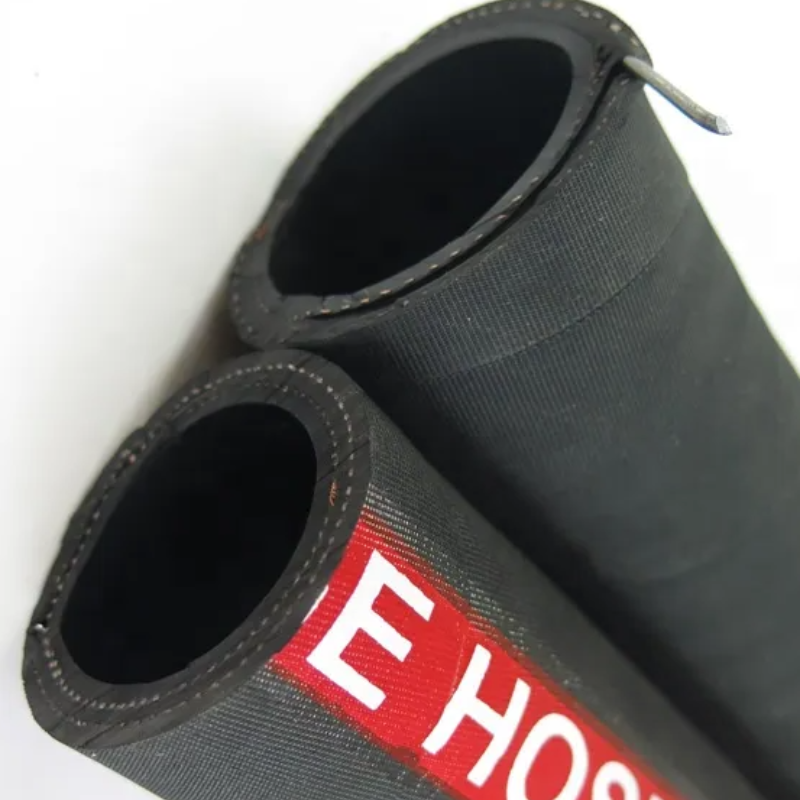Jul . 27, 2024 07:03 Back to list
Premium Durable Hydraulic Hose for High Temperature and Extreme Heat Resistance Applications
High-Quality Heat Resistant Hydraulic Hose An Essential Component for Modern Industries
In the realm of fluid mechanics and engineering, the hydraulic hose plays a pivotal role in various applications, from construction machinery to aerospace engineering. Among the various types of hydraulic hoses available, high-quality heat-resistant hydraulic hoses stand out due to their ability to withstand extreme temperatures while maintaining performance integrity. This article delves into the importance, features, and applications of heat-resistant hydraulic hoses in modern industries.
Understanding Heat-Resistant Hydraulic Hoses
Hydraulic hoses are designed to transport fluids under pressure, and their construction must be robust enough to handle the operational demands of specific environments. A heat-resistant hydraulic hose is specifically engineered to endure high temperatures, typically up to 150°C (302°F) or more depending on the material composition and design. These hoses are commonly made from a combination of synthetic rubber and reinforced with fibers that enhance their structural integrity and thermal resistance.
Key Features
1. Material Composition The primary materials used in manufacturing heat-resistant hydraulic hoses include thermoplastic elastomers (TPE), synthetic rubber, and sometimes metal reinforcements. These materials are selected for their excellent thermal properties, flexibility, and durability.
2. Reinforcement Layer A significant aspect of these hoses is their multi-layered construction. The inner layer is typically designed for resistance to wear and abrasion, while the outer layer provides protection against environmental factors such as UV radiation, ozone, and chemicals.
3. Pressure Ratings High-quality heat-resistant hydraulic hoses are designed to operate under significant pressure. These hoses have specific pressure ratings that indicate their ability to perform safely and reliably under heavy loads, making them suitable for demanding applications.
4. Temperature Stability Unlike standard hydraulic hoses, heat-resistant versions maintain their mechanical properties and performance even at elevated temperatures. This stability is crucial for applications in industries such as oil and gas, automotive, and manufacturing.
high quality heat resistant hydraulic hose

Applications
Heat-resistant hydraulic hoses are utilized extensively in various industrial sectors. Here are a few examples
- Automotive Industry In automotive applications, these hoses are often used in areas where high heat is generated, such as the engine or transmission systems. Their ability to resist thermal degradation enhances safety and performance.
- Manufacturing and Heavy Equipment Construction and mining equipment rely heavily on hydraulic systems for operation. Heat-resistant hoses ensure that machinery can function effectively in high-temperature conditions, thereby improving efficiency and reducing downtime.
- Aerospace In the aerospace sector, where environmental conditions can vary dramatically, heat-resistant hydraulic hoses are crucial for ensuring the safe operation of hydraulic systems in aircraft.
- Oil and Gas Exploration and extraction processes in the oil and gas industry often involve extreme temperatures. High-quality heat-resistant hoses are essential for transporting hydraulic fluids safely in these applications.
Conclusion
The significance of high-quality heat-resistant hydraulic hoses cannot be overstated in modern industries. As machinery becomes more advanced and applications more demanding, the need for components that can withstand harsh conditions continues to grow. Investing in premium heat-resistant hydraulic hoses not only enhances operational efficiency but also ensures safety and reliability. Industries that leverage these advanced hoses benefit from reduced maintenance costs, improved performance, and ultimately, a competitive edge in their respective markets. As technology evolves, the development of even more resilient materials and designs will further enhance the capabilities of hydraulic hoses, marking an exciting future for hydraulic systems.
-
Best Four Steel Wire Spiral Hose Hydraulic R12 – Durable High-Pressure Hose Manufacturer
NewsJul.08,2025
-
High-Quality 1/4 Hydraulic Hose – Soft, Flexible & Durable Rubber Hoses for Industrial Use
NewsJul.08,2025
-
1 1 2 Inch Hydraulic Flexible Hose - Durable, Reliable, High-Pressure Solutions
NewsJul.07,2025
-
High-Quality 1 2 Rubber Hose - Durable, Flexible Hydraulic Solutions
NewsJul.07,2025
-
Discover SAE Hydraulic Hose Types - High Quality & Durable Hoses from Leading Factory Supplier
NewsJul.06,2025
-
High Pressure Wire Hydraulic Rubber Hose Supplier Durable & Reliable 1SN Hose Solutions
NewsJul.06,2025
